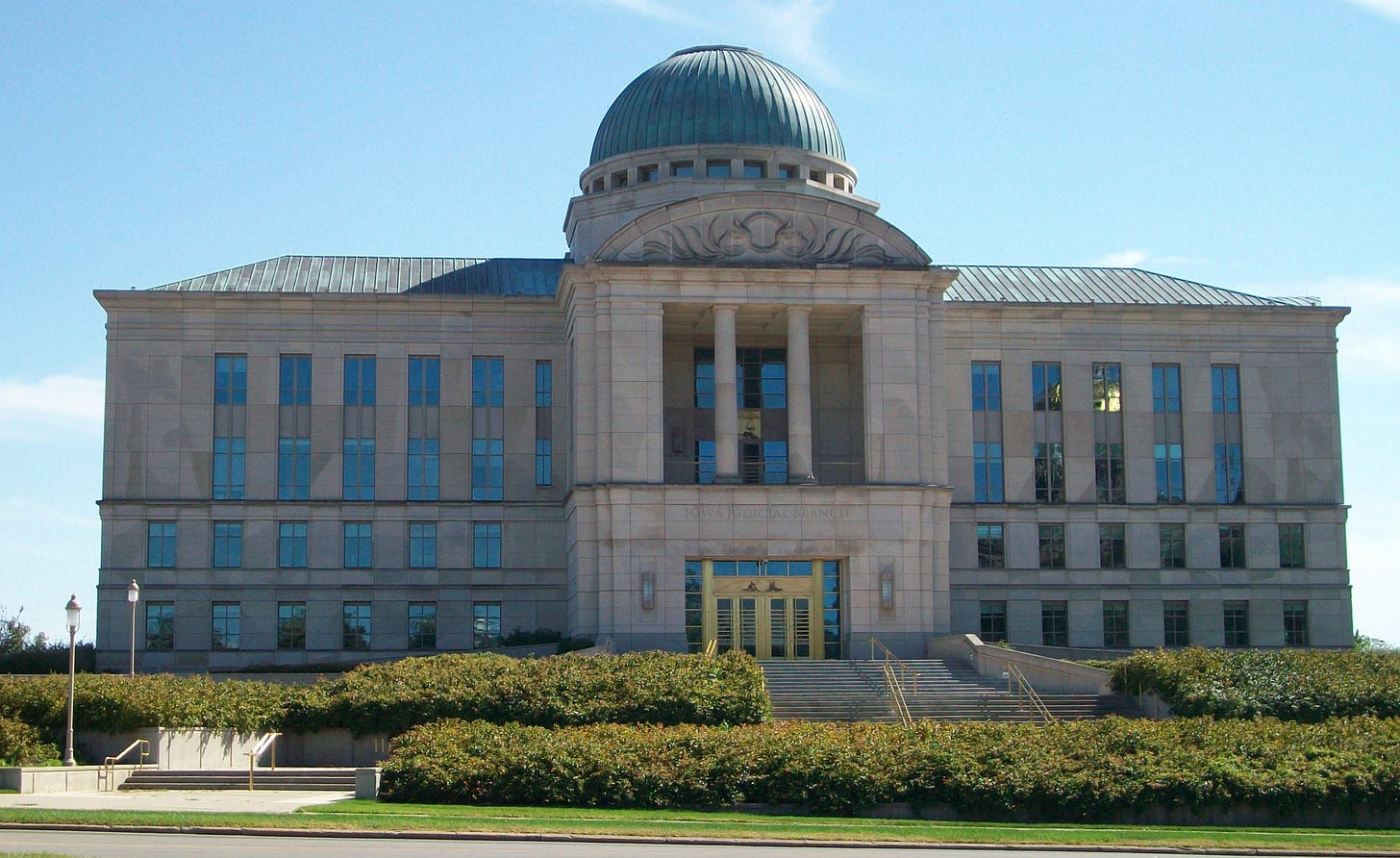Justice delayed is justice denied
While it is one of the three co-equal branches of government, the judicial branch is at the mercy of the other two for its budget.

“That would be clearly against the contract. If they do that, you can take them to court”
“OK, but where would I live for the year while that worked out?”
— Paraphrase of a conversation about a home purchase
The belief in equal and impartial justice for all is central to our republic, so much so that the framers of our federal and state Constitutions dedicated an entire branch of government to it. The judiciary’s power to interpret the law is equal to the legislature’s power to create law and the executive’s powers to enforce it. The names of prominent cases, from Dred Scott to Tinker v. Des Moines to Brown v. Board of Education, have defined our nation as much as the Marshall Plan, Great Society, and Iraq Wars. Our courts decide criminal cases, provide a neutral party to resolve civil disputes, and allow us to hold the legislative and executive branches accountable for overstepping their authority.
But to most of us, justice operates invisibly. Most cases are quietly resolved without generating headlines. They have central importance to those involved and may create precedent, but most court proceedings are decidedly unsexy.
This low profile is likely why the Iowa Legislature has failed to adequately fund our court system and recently felt so free to squeeze it with a series of freezes and mid-year cuts. The business of the courts is brisk — there were over 28,000 more court filings last year than in 2015 — but the legislature has responded by freezing and cutting their budget, resulting in delays, vacancies, and higher costs for the state.
Court staff has been reduced by 182 positions, almost 10%, since 2016.
Over 115 essential positions remain unfilled.
The number of applicants for judgeships has decreased.
The average judicial vacancy has increased from 6 months to one year.
Civil trials have been delayed for up to a year.
Rural counties have reduced services; 58 lack full juvenile court services, and many lack their own clerks.
Iowa courts fell last year from being the fourth-best in the nation to the 13th-best
Up to 30 county courthouses were threatened with closure this year.
Courts have inadequate technology: a system crash last year resulted in the courts being essentially unavailable for a week, and inadequate information security puts millions of pages of personal, financial, and confidential business information at risk.
Cuts to specialty courts and other judicial programs result in increased spending on prisons and other services.
While it is one of the three co-equal branches of government, the judicial branch is at the mercy of the other two for its budget. The legislature sets the budget, and the executive may veto what it does not approve of. The judiciary must take what it can get. For most of Iowa’s history, our legislature has respected the value of the justice system and given it enough. We can no longer take that comity for granted.
If Iowa wants all of its citizens to have access to courts that work well for all of us within time frames that matter to us — not just for those who live in the right counties and those who can afford to wait a year for adjudication — then we need to pay for them. If the legislature is unwilling or unable to fulfill its duties and ensure that the judicial system has the resources to provide swift justice in all of Iowa’s counties, then we citizens may have to force its hand. It may be time to amend the Iowa Constitution to require full funding for this co-equal branch. At a minimum, the funding of the judiciary must be adequate to address the shortfalls caused by recent cuts. We urge you to contact your state legislators and advocate for a fully funded system of courts to serve all Iowans.
Kelcey Patrick-Ferree and Shannon Patrick live in Iowa.
Originally published in the Iowa City Press-Citizen on April 13, 2018.

